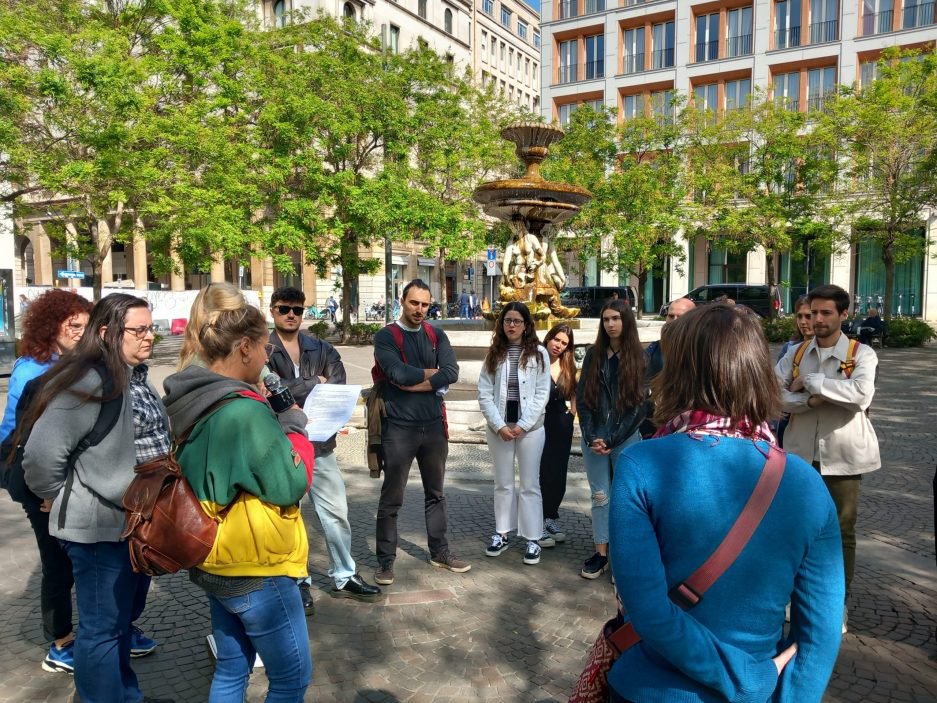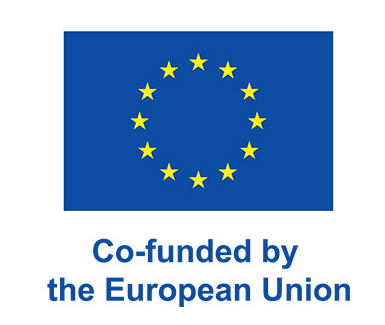Study visit “Women and democratization” organized in Milan, Italy

Documenta and its partners on the project “Female perspectives on the democratic transitions of the 1970s, 1980s and the 1990s” organized the study visit “Women and democratization” in Milan, Italy, between April 26 and April 29, 2023.
The study visit focused on the “strategy of tension” in Italy (1969-1974), a period in which several massacres and terrorist attacks were carried out by far-right movements with the complicity of the secret services and state apparatuses. The participants visited various locations in Milan connected with the “strategy of tension” and met female protagonists of the time.
The study visit gathered youth workers from Italy, Spain, Croatia, Bulgaria, and Romania.
On April 26, our colleagues from Lapsus (Milano), one of the partner organizations on the project, held an introductory session on the historical context in Italy during the 1960s and 1970s.
Following the introduction, on April 27, the participants took part in a guided tour around locations in Milano related to the “strategy of tension” and the Piazza Fontana bombing.
At Piazza Fontana the international group of participants met with time-witness Claudia Pinelli, the daughter of Giuseppe “Pino” Pinelli. On 12 December 1969, a bomb went off at Piazza Fontana killing 17 people. Together with other anarchists, Giuseppe Pinelli was taken to Milan police station for questioning regarding the attack. Three days later, Pinelli fell to his death from a window of the police station. Legal proceedings later on concluded the fall happened by accident. This case, as others from the period, still divides Italian society, as demonstrated by the two plaques in memory of Giuseppe Pinelli at Piazza Fontana. Both plaques state Giuseppe was innocent of the bombing, but one states he was killed, while the other only says he died innocent.
Following the meeting with Claudia Pinelli at Piazza Fontatna and her recollections of the time, the participants had an opportunity to learn more about the case during a session of questions and answers.
Later that day, the participants exchanged perspectives from democratization processes in their countries and discussed the similarities and differences among the different cases represented in the group: the transition to democracy that started in 1989 in Bulgaria and Romania, the break-up of Yugoslavia in 1991 and the transition to democracy after the dictatorship of Francisco Franco in Spain.
On April 28, the participants continued their discussion on democratization with the workshop “Reshaping 1989”. Each group created a plasticine representation of democracy in their country and motivated their choice so that perspectives from different European countries were shared.
To also exchange knowledge and working methods, during the following session the youth workers shared their best practices related to the project’s topics and suggested methods that can be used when working with youth.
As the final activity for April 28, a public discussion on the evolution of the feminist movement in Italy from the 1970s till today was organized in Casa della Memoria in Milan. The contributions of speakers Vicky Franzinetti and Carlotta Cossutta were followed by many questions.
The study visit ended on April 29 with another guided tour around relevant locations in Milan, this time held in Italian. A meeting with time-witness Claudia Pinelli was again organized.
The study visit is part of the project “Female perspectives on the democratic transitions of the 1970s, 1980s and the 1990s”.
This article is part of the online campaign in the scope of the project “Female perspectives on the democratic transitions of the 1970s, 1980s and the 1990s” .
The project is co-financed by the European Union.

